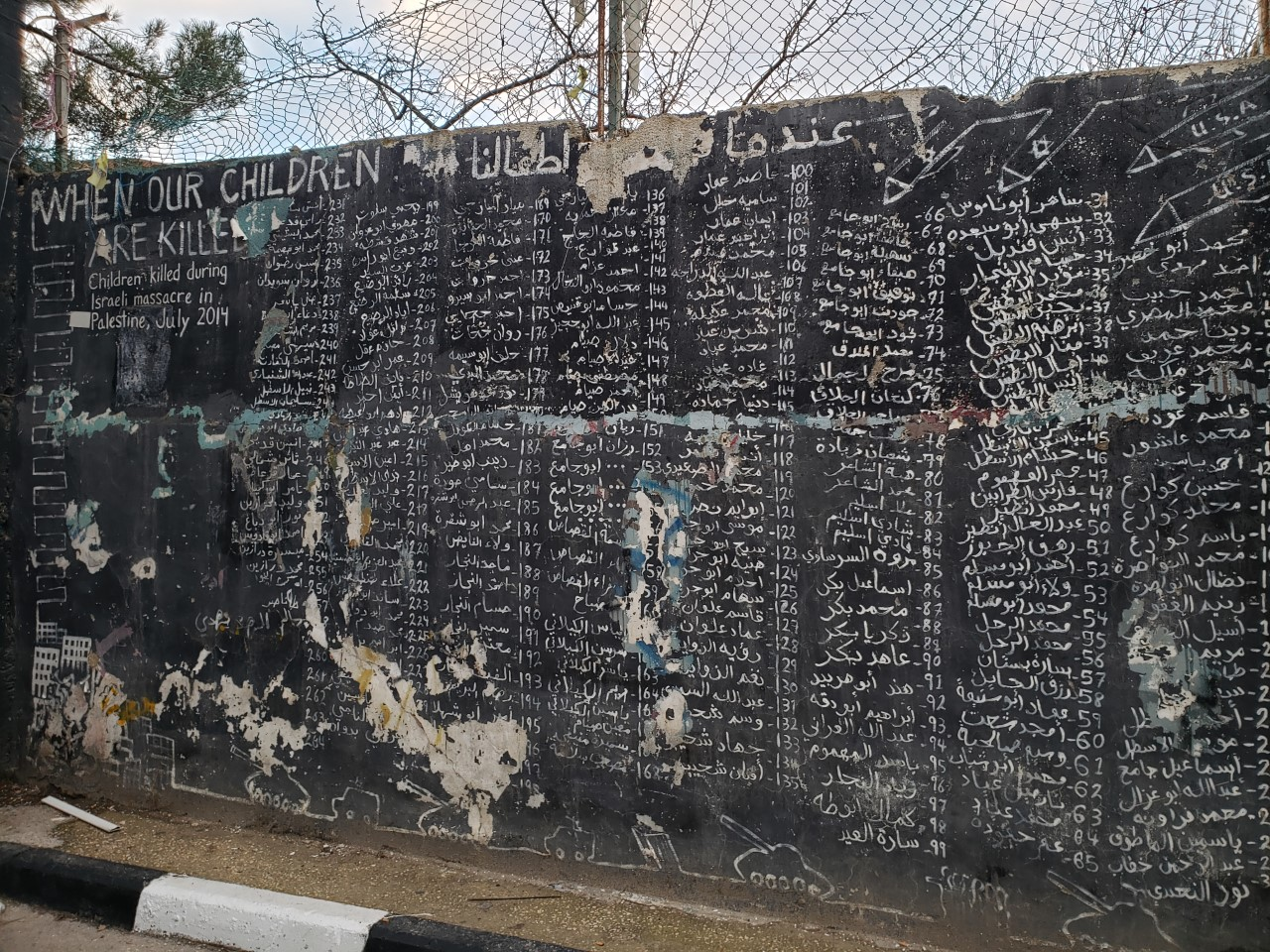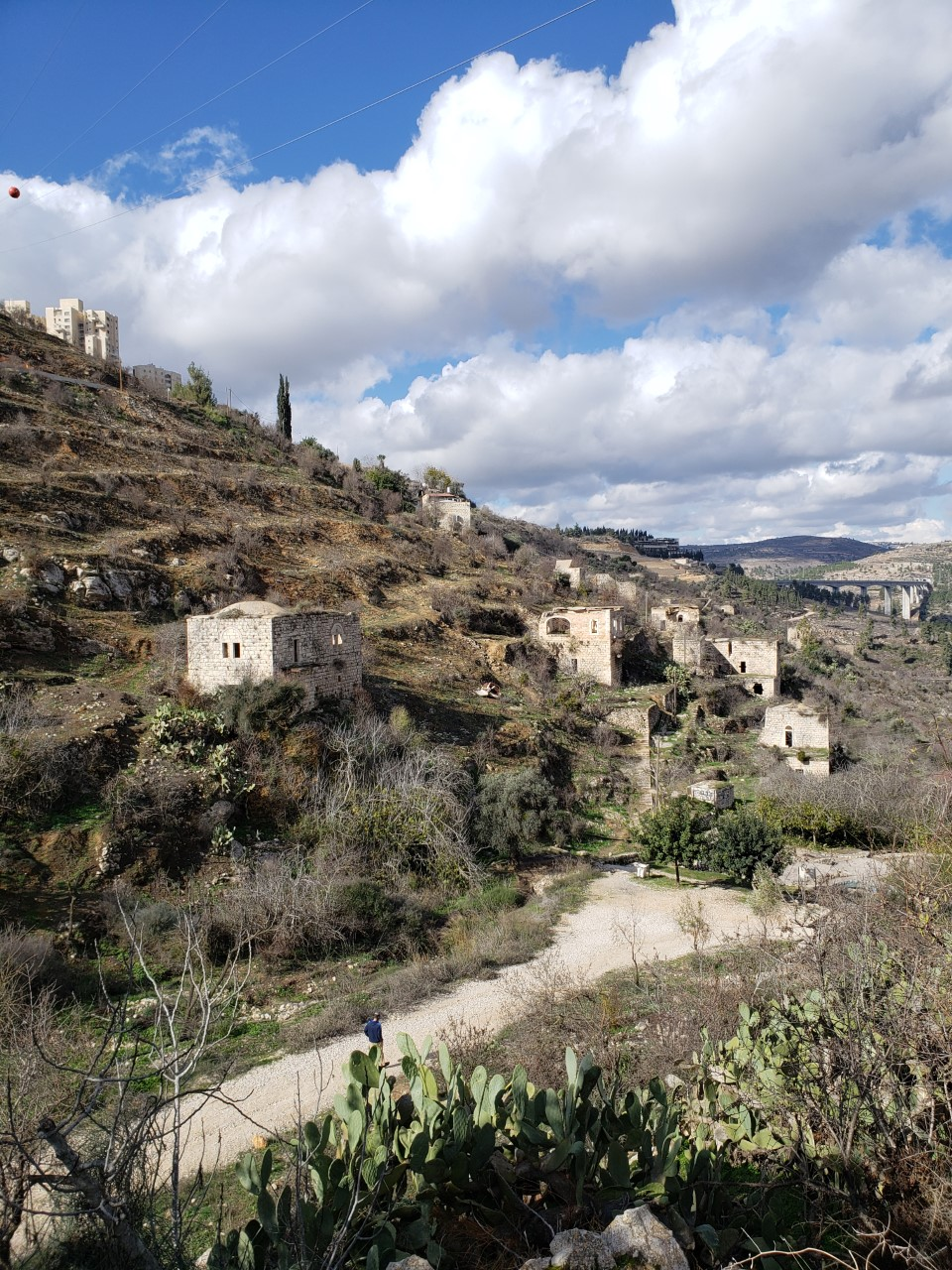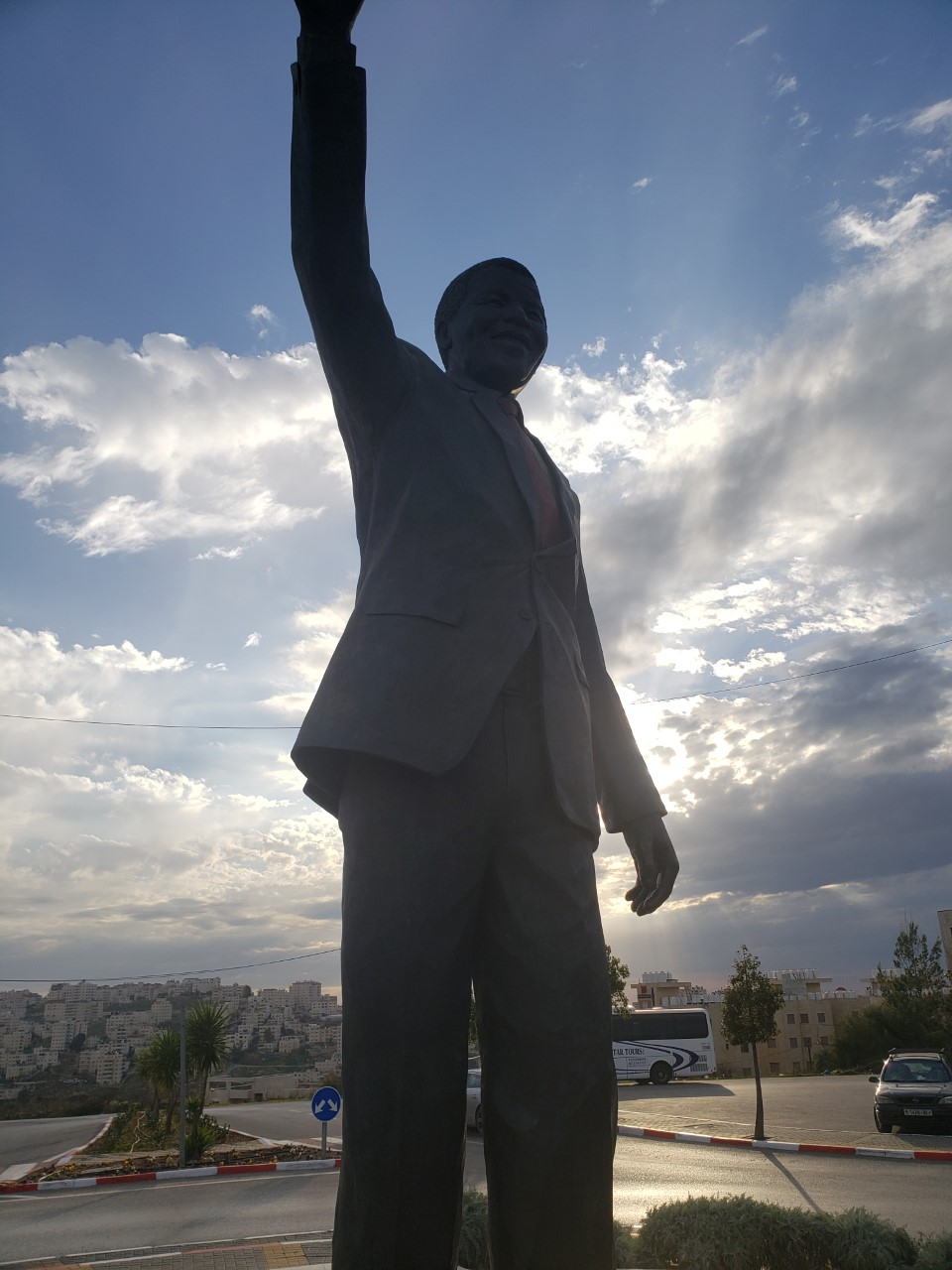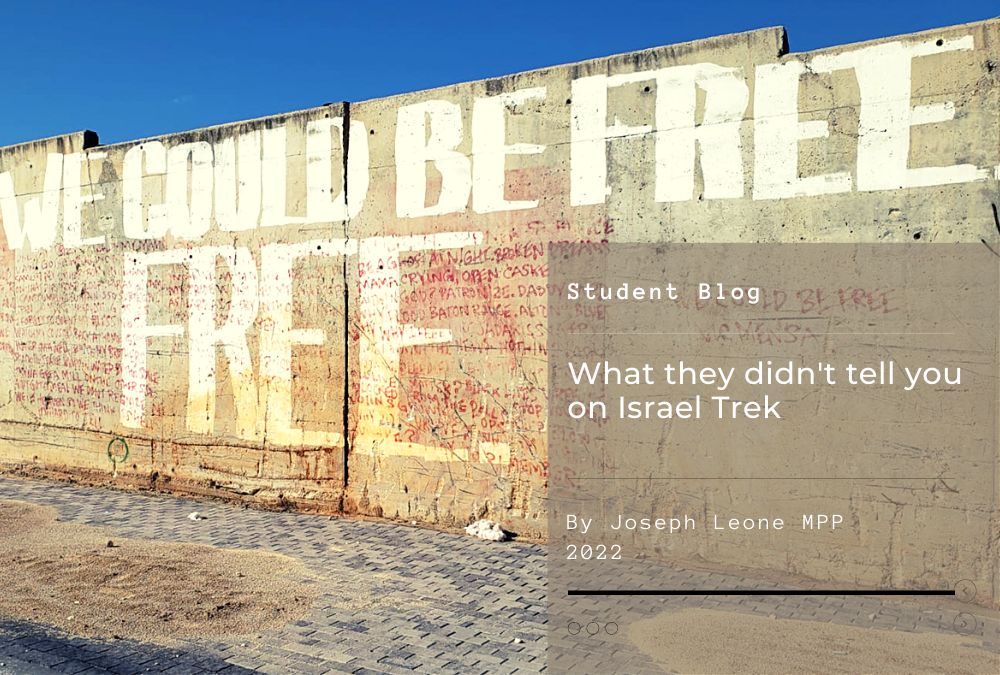“I have killed many Arabs in my life, and there’s no problem with that.”
“When you [Palestinians] were still climbing trees, we had a Jewish state here.”
These are the words of current Israeli prime minister Naftali Bennett, who 282 of our HKS classmates met with last month as part of the HKS Israel Trek.
This spring break trip, sponsored and subsidized by itrek—a 501(c)(3) that facilitates hundreds of these student trips—bills itself in its promotional materials as having “no political agenda.”
This, of course, is nonsense. We’ve all heard that there is “no such thing as a free lunch.” Well, there is also no such thing as a two-thirds-subsidized apolitical trip to an apartheid state.
Sure, itrek may not explicitly endorse the views of every person students meet, but it is a trip with a specific purpose. Its itinerary paints a clear picture of what it wants participants to come away believing—and what it doesn’t want them to know.

Mural in Aida Refugee Camp commemorating the children killed during Israel’s 2014 assault on the Gaza Strip, which killed over 2,100 Palestinians, including 495 children.
In addition to meeting with Bennett, students spent time visiting Israel’s illegal settlements on occupied Palestinian land, internationally recognized as a violation of the Fourth Geneva Convention and a war crime. They met with Oded Ravivi, the mayor of the illegal settlement of Efrat in the West Bank (built on the forcibly confiscated land of the Palestinian villages of al-Khader, Wadi al-Nis, Artas, and Khirbet Beit Zakariyyah). They imbibed at a winery in the illegal Gush Etzion settlement bloc, partying on stolen land. On another night, students slept in an illegal settlement in the occupied Syrian Golan Heights.
Yet, the word “settlement” is completely missing from the trek itinerary sent to participants (not to mention the phrase “war crimes”). Instead, Efrat is called an “Israeli city in the West Bank.” The illegal settlement in the Golan Heights is simply called a kibbutz. This is how itrek describes the continued colonization of Palestinian land.
It is not just the meetings with Israeli politicians and military officials—the more blatantly political parts of the Israel Trek—that serve a specific ideological purpose. Promotional materials for the trek emphasized that the trip would be “the funnest (Tel Aviv), with the most career opportunities (Startup Nation).” These seemingly innocuous activities—clubbing in Tel Aviv, floating in the Dead Sea, meeting tech startup CEOs, and doing yoga on the beach—all serve a specific political purpose as well. itrek, which targets top policy, business, and law schools, wants future leaders to build a positive association and lasting connections with the state of Israel. They want students to think of it as a fun, normal (Western) country where people party, invent apps, produce wine, and yearn for peace despite a very “complicated” political situation.
They do not want students to think of Israel as an apartheid state, which the top Palestinian, Israeli, and international human rights organizations agree it is. They do not want students to think about how the Tel Aviv nightclub they danced in is built upon Palestinian towns destroyed and ethnically cleansed during the 1947-48 Nakba, when Zionist militias violently exiled over 750,000 Palestinians from their homes to create a Jewish-majority state. They do not want students to return to the United States and question the $3.8 billion of military aid given to Israel every year to continue to displace Palestinians from their homes in an ongoing Nakba. Instead, they want them to think of the beach, the club, the winery, the hikes, and just how darn complicated the whole situation is.

Ruins of the Palestinian village of Lifta, ethnically cleansed in 1947-1948 by Zionist militias
Israel may advertise itself as a hub of innovation, but it did not invent this style of propaganda trip. South Africa’s apartheid regime also sponsored “educational trips” to the country for current and future leaders—including 23-year-old future UK prime minister David Cameron—to improve the country’s image and build its network of support abroad. South Africa’s white leaders wanted the world to see South Africa not as a repressive regime built on settler colonialism and racial domination, but as a country of beautiful beaches, magnificent wildlife safaris, and world-renowned wineries.
These trips were part of a larger public relations effort to try to stave off international pressure aimed at dismantling apartheid. Like itrek, many of these trips did not ignore the political situation but portrayed themselves as neutral “fact-finding missions.” The South African government’s 1986 tourism campaign in the United States invited Americans to “come see for yourself.” Another emphasized that “it’s safe – and fun – to vacation here.”
The HKS Israel Trek purports to provide a balanced perspective because it met with the prime minister of the Palestinian Authority. The Palestinian Authority, however, is viewed by many Palestinians as little more than a subcontractor of the Israeli occupation, enforcing Israel’s will and doubly oppressing Palestinians in the West Bank. In a similar fashion, South Africa’s apartheid regime would point to the leaders of the Black “Homelands”—puppet governments created by the regime to rule the small cantons of land that Black Africans were forced into—as representatives of the “other side.”
Just as these trips did not meet with Nelson Mandela and the ANC, itrek will never meet with any of the millions of Mandelas in Palestine currently fighting for justice and liberation, as it is antithetical to the purpose of the trip.

A 20-foot Nelson Mandela statue in the Palestinian city of Ramallah, gifted by the South African city of Johanesburg. “We know too well that our freedom is incomplete without the freedom of the Palestinians.” – Nelson Mandela, 1997.
Ultimately, these tactics failed for South Africa, and the world imposed strict sanctions and boycotts on the country until it dismantled its apartheid regime in 1994. It is my sincerest hope that our classmates can see through what they have been told and join the fight for justice and liberation in Palestine to achieve the same.
